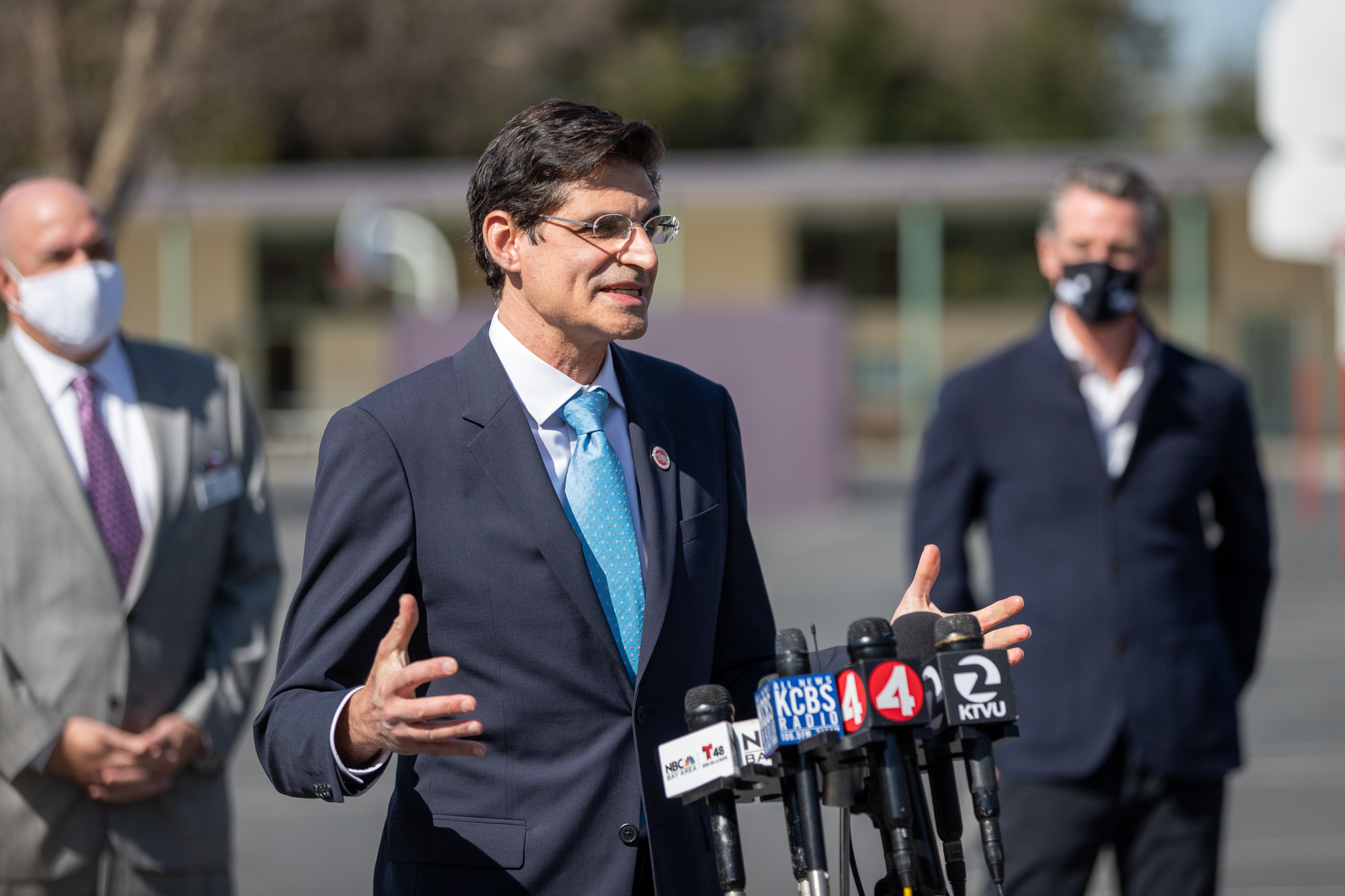Seeking to curb what he calls cruel and egregious markups at California prisons, state Sen. Josh Becker is spearheading a law that would cap prices on items sold at canteen stores.
The new legislation, known as Senate Bill 474 or Basic Act, reduces the markups on items sold in prison stores to 35% above what is paid to vendors. The bill cleared the Legislature this week and is now on its way to Gov. Gavin Newsom for his signature.
For Becker, SB 474 is the second major piece of legislation that addresses prison conditions. Last year, he successfully advanced SB 1008, which allowed incarcerated individuals to make and receive phone calls free of charge.
The new bill was influenced by recent studies that showed markups of more than 200% for some items at prison canteens. A 2020 audit by the Inmate Welfare Fund found that canteen items were marked up an average of 65% of the price paid to the vendor, which contributed significantly to economic burdens suffered by both the incarcerated individuals and their family members.
Isa Borgeson, campaign manager at the Ella Baker Center for Human Rights, testified at a June meeting of the Assembly Public Safety Committee that because of inadequate food and hygiene provisions in state prisons, most incarcerated people depend on canteen purchases for basic needs. But given the high markups and extremely low wages, essential items like toothpaste and body wash remain out of reach for many. The financial burden, she noted, often falls on their family members, who are disproportionately Black and brown women.
"It is unacceptable for incarcerated people and their loved ones to fund the Department of Corrections' operating expenses and staffing costs through high markups on essential goods," Borgeson said in her testimony in support of SB 474.
She also read a letter from Steve Warren, an inmate at San Quentin, who listed some of the prices that the canteen charges: $10.80 for a case of soup, $3.60 for a stick of deodorant; $2.40 for laundry soap. With inmates earning a minimum wage of $0.08 per hour, he receives about $12.80 per month.
"Overpriced canteen items force me to become a financial burden to my family," the letter stated.
In his testimony to the Assembly Public Safe Committee, Becker noted that the February 2023 price list at San Quentin State Prison shows Aquafresh toothpaste going for $5.50, more than twice of what it would cost at Walgreens, where it retails for $1.83. These markups, he said, "make may produces inaccessible and economically drain over $30 million a year from predominantly low-income families of color."
"We need the BASIC Act, because incarcerated people should not have to choose between basic necessities of food, hygiene products or health supplements," Becker said.
A 2020 report by Impact Justice, which surveyed 250 formerly incarcerated individuals and 230 friends and families of incarcerated individuals, underscored the extent of the problem. Three in five formerly incarcerated people reported they could not afford commissary purchases and many people are "forced to choose between buying food and purchasing necessities such as toothpaste or making costly phone calls to loved ones." Furthermore, 75% reported that they were served rotten or spoiled food while they were incarcerated.
"We heard stories of people so desperate for palatable food that they would trade sex for commissary items, form romantic relationships with others who could afford to shop at the commissary, or get involved in gang activity when commissary items were a reward," the 2020 report states "As one formerly incarcerated person said, 'If you didn't cook…you starved.'"
Assembly Majority Leader Isaac Brown, D-Los Angeles, who presented SB 474 on the Assembly floor, served as the principal co-author of the legislation.
"I have family who have been incarcerated," Bryan said in a statement Thursday, Sept. 14. "I've got J-Pay on my phone right now. You send a hygiene kit or you send some noodles, and then you see your final fines and fees, and you realize that this is the most expensive cup of noodles you've ever seen."
The legislation sailed through the formal process, boosted by support from more than 2,000 individuals and dozens of advocacy groups focused on prison reform and social justice.
In a Thursday statement, Becker called the prison markups of food and hygiene items "egregious and cruel." He noted that this year alone, prices have increased by least three times in some prisons, with coffee in these places now going for $9.05 and toilet paper for $1 per roll.
"We have a $15 billion prison budget in this state," Becker said in the statement. "It is time we stopped profiting off the sale of basic necessities to one of our state's most vulnerable populations."



Comments